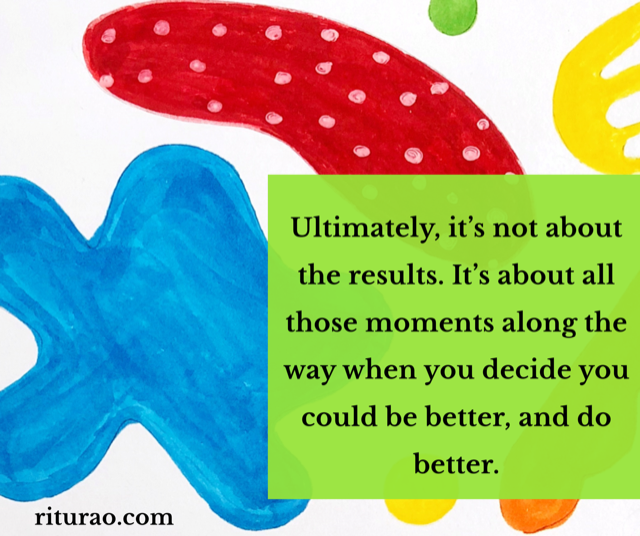
We love results. We are a results-oriented culture, frequently stepping over the line into results-obsessed.
We want results, and we want them to be good. Professionally, it’s how we are largely evaluated. In our personal lives, results are how we often judge ourselves and decide if we’re good enough.
So when they fall short of expectations, we’re disappointed. We falter. We place blame, or curse our luck.
We think we need to improve the results. But results are not the problem.
Focusing on results alone is like spitting out answers without knowing the question. It doesn’t work.
Then it gets frustrating, hopeless. Eventually, it leads to anger and bitterness.
The problem of improving the output is not fixed by improving the output. The problem of improving the output is dealt with improving the input.
Which means dialing things back. Sometimes a few steps, sometimes all the way back, because the important, worthwhile problems tend to be complex and tangled.
This can seem both trivial and incredibly overwhelming at the same time. Most of us feel we’ve moved beyond the basics and shouldn’t have to or want to bother.
This is why “just work harder” doesn’t work, or only rarely.
Admitting that something is not working and it needs to change is not always easy. Neither is starting over.
But when things are not working, that’s exactly what we need to do.
Ultimately, it’s not about the results. It’s about all those moments when you decide you could be better, and do better, along the way. Then let go of trying to control what you know deep down you cannot.
You can start small. Do it for a little while and you’ll notice that perhaps an old belief was holding you back. Or that the desire for results was blinding you from learning what you needed. When you learn what that is, it’s useful. Then you can use it going forward.
That’s how you improve your inputs.
Do that enough as you keep going, and your outputs will take care of themselves.
Leave a Reply